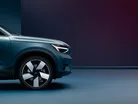Volvo leaves the ACEA to set a sustainability precedence

Car manufacturers are flexing their power in the shift towards net-zero emissions through electric vehicle (EV) adoption. As sustainability is the primary driver of this, organisations are clearly showing their commitments as the automotive landscape shifts to more eco-friendly solutions.
Volvo is one of the groups that is sharing its sustainability commitment with the world as it focuses its attention towards EV adoption, both in the consumer vehicle industry and in trucking.
Sustainability encourages parting of ways
The company has decided to follow a similar path to its fellow automotive manufacturer, Stellantis, and announced its departure from the European Automobile Manufacturers Association (ACEA) by the end of 2022. The decision was made as the ACEA’s targets are no longer aligned with the company as the organisation follows the guidelines of the European Union (EU), which will ban fossil-fuel cars from 2035.
When Stellantis left the association last month, ACEA said:
“While the European Automobile Manufacturers’ Association (ACEA) respects the decision of Stellantis to withdraw its membership of the association at the end of this year, we regret to see them leave.”
“We remain committed to act as a strong common voice of EU-based car, truck, van and bus makers.”
According to the ACEA, at the time of passing the zero-emission transport deadline by the EU, it said, “any long-term regulation going beyond this decade is premature at this early stage."
The Swedish manufacturer concluded that “ Volvo Cars' sustainability strategy and ambitions are not fully aligned with ACEA’s positioning and way of working at this stage."
Its representatives also said:
“We therefore believe it is better to take a different path for now.”
"What we do as a sector will play a major role in deciding whether the world has a fighting chance to curb climate change."
Volvo’s sustainability strategy and goals
The ability to achieve full electrification by 2030 is one of the major steps in Volvo’s climate neutral strategy, which it hopes to achieve by 2040.
Some of the usual principles arise, including climate change action, circular economy, and ethical business, but how will it achieve them?
EVs are a major step in the organisation’s plans, which are also echoed through its sister brands as they develop battery-electric solutions for the future. Polestar is one of those brands, a pure-play company, that is seeing increased demand for its vehicles.
When it comes to Volvo’s electrification success, the XC40 Recharge was brought to market in 2021 and has since become one of its most popular vehicles as a fully-electric motor. The organisation’s ambition for 2025 is to reach 50% vehicle sales from pure EVs and remove all fuel-powered cars by 2030.


